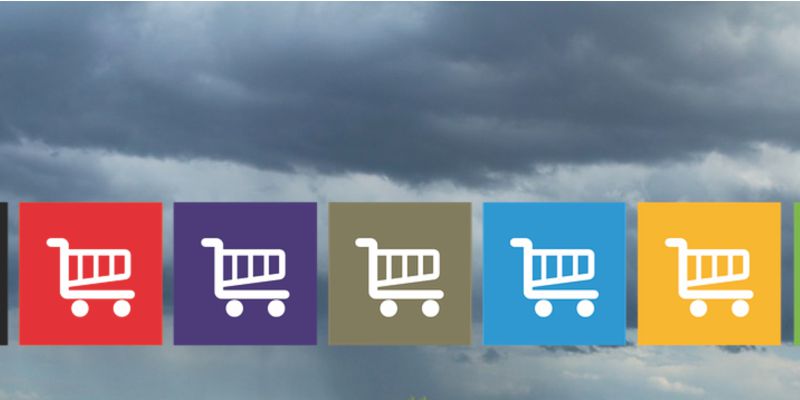Price Inflation – Dark Clouds on the Horizon

Canadian shoppers will change habits affecting both brands and retailers
By Jeff Doucette, founder, Field Agent Canada
To say that our industry has been through a roller coaster over the past 18 months is an understatement. Other than airlines, the grocery industry is one of the most challenging businesses and we often move from one rough patch to another in a speedy fashion.
The next rough patch on the horizon for our industry is food inflation. We have seen poor growing seasons, supply chain bottlenecks and labour challenges all put upward pressure on food prices across almost every category.
Field Agent Canada recently surveys over 1,000 Canadian shoppers to explore what impact higher food prices will have on shopping habits in the grocery store and across other areas of the household budget.
Shoppers are noticing higher prices on store shelves, with 85 per cent of respondents saying that they have noticed higher prices in the past month and 78 per cent of respondents are either moderately or extremely concerned about increasing food prices. This is not a surprise given the overall weight of food costs in the budgets of Canadian households.
Respondents to the survey fully expect brands to take price increases as costs increase, but some of the less visible ways brands offset increasing costs are also getting noticed by shoppers. Sixty-four per cent of shoppers expected that brands will shrink the pack size and keep the price the same and 52 per cent said that they expect items will be on-sale less frequently. Most interestingly, 32 per cent of respondents thought that brands would reduce the quality of products to maintain profitability.
So what impact will increasing food prices have on shopping behaviours?
Eighty-three per cent of respondents said that they would stock-up on items when they are on-sale, potentially a residual habit of COVID related product shortages. Brands should expect increased sales on promotion and provide stock (and budgets) to cover the increased sales or potentially explore limits on items that are on-sale.
Food inflation may not result in bigger basket sizes. Over half of respondents said that they would switch to lower price brands in the same category and the same proportion of shoppers said they would buy store brand products more often.
Fifty-five per cent of consumers also said they would also but some categories less often (reduce consumption) to help maintain their overall grocery expenditures. The categories at most risk include Candy / Chocolate, Soft Drinks, Salty Snacks and Prepared Foods. There was also a significant impact on frozen categories from Frozen Meals, Ice Cream and Frozen Pizza.
Through the pandemic we did see a benefit for traditional supermarkets as shoppers were less price sensitive in a trade off to shop in less crowded stores nearer to their home. This resulted in market share increases and improved profits at these banners.
In the face of increasing prices, 32 per cent of shoppers said that they were likely to switch retailers to save money. When asked which retailers they trusted most to offer the lowest prices for groceries the top responses were No Frills / Maxi (29 per cent), Superstore (22 per cent), Walmart (20 per cent) and Costco (14 per cent). These banners appear poised to gain market share as food process increase.
Additionally, the impact of higher grocery prices goes beyond the supermarket. Seventy-seven per cent of respondents said that they would cut-back on eating at restaurants, while other areas where consumers will cut back to save money include apparel purchases (49 per cent), out-of-home entertainment (49 per cent), electronics/tech (45 per cent), travel (42 per cent). We even say 36 per cent of respondents say that they will cut back on holiday gifts and 33 per cent cutting back on holiday celebrations.

In short, food inflation will be a major economic issue for the Canadian economy, likely well into 2022. As an industry, we need to do what we can to minimize the impact to Canadian consumers to avoid a longer-term economic slowdown which will have negative impacts for both brands and retailers.
Of course, we need to protect our businesses, but brands and retailers must also push harder to find offsetting efficiencies to minimize the amount of cost increases that need to be passed along to the consumer.
Jeff Doucette is the founder of “Field Agent Canada” an on-demand panel of Canadian shoppers providing a suite of innovative services to Canadian retailers and brands. He can be reached at jeff.doucette@fieldagentcanada.com
-30-
Source: westerngrocer.com

